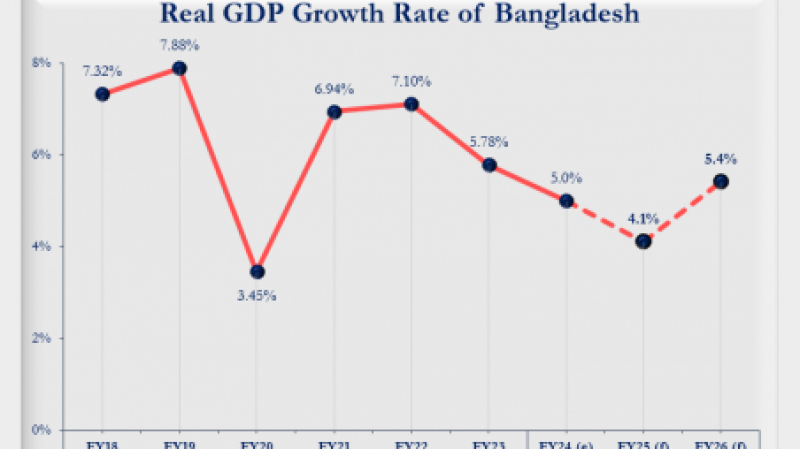- Sri Lanka urges Pakistan to reconsider India match |
- Centre of World Cup storm Mustafizur lands PSL deal with Lahore |
- BNP and Jamaat election camps vandalized in Gazipur |
- Dhaka requests UN rights office investigation into Hadi murder |
- Bangladesh establishes formal diplomatic ties with Grenada |
BD Economy to See Weakest Growth Since Pandemic: WB

Bangladesh's economic growth is projected to slow to 4.1% in the current fiscal year (FY25), marking the weakest pace since the pandemic, due to political turmoil and eroding investor confidence, the World Bank warned on Thursday (16 January).
In its latest Global Economic Prospects report, the World Bank highlighted that political instability in mid-2024 has dampened investment and industrial activity, and this trend is expected to persist in the near term. Growth has already slowed for two consecutive years, with the World Bank estimating a 5% expansion for FY24.
This projection contrasts with provisional data from the Bangladesh Bureau of Statistics (BBS), which reported a growth rate of 5.82%, though final numbers are pending. The World Bank cited supply constraints, including energy shortages and import restrictions, as key factors weakening industrial output and fueling inflation, which in turn has reduced household purchasing power and slowed services growth.
Despite the bleak near-term outlook, the World Bank is cautiously optimistic for the future. It forecasts a recovery to 5.4% growth in FY26, contingent on political stability, financial sector reforms, an improved business climate, and increased trade. Easing inflation is expected to boost private consumption.
However, recent BBS data revealed a sharp slowdown in key economic sectors—agriculture, industry, and services—during the first quarter of FY25. GDP growth slowed to just 1.81% in the July-September period, the lowest in 15 quarters, compared to 6.04% during the same period last year.
In a separate update, the government revised its GDP growth projection for FY25 down to 5.25%, from an earlier estimate of 6.75%.

